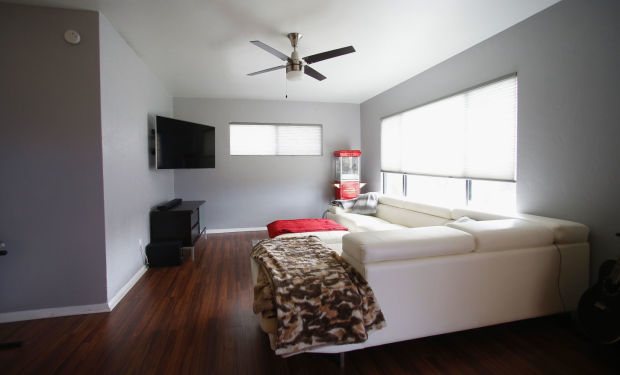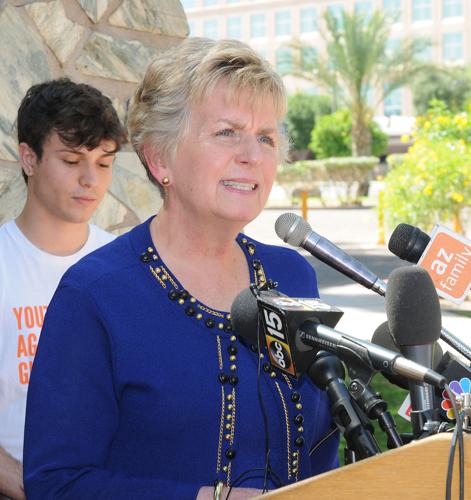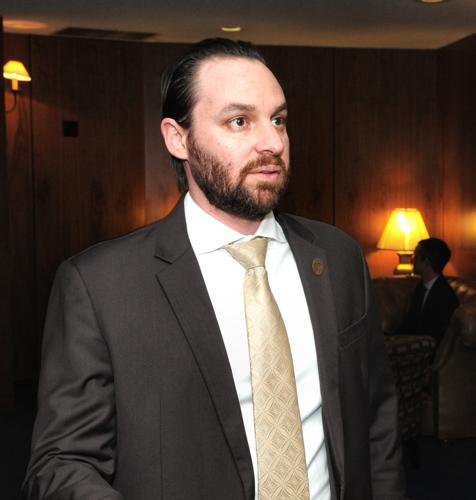PHOENIX — State lawmakers may be ready to rein in short-term rentals.
The Arizona Senate approved legislation last week on a 23-5 vote to restore some rights of cities, towns and counties to impose "reasonable'' limits on, as examples, the number of vacation rentals in any one area and how many people are allowed to stay in a home or apartment.
Sen. Kate Brophy McGee, R-Phoenix, had to give up on some of what she wanted to get the votes for the bill, SB 1554.
For example, gone is a prohibition against corporations buying up homes and apartment buildings solely for the purpose of converting them into vacation rentals. And the legislation has a "grandfather'' clause, essentially saying local governments cannot drive out any short-term rentals already in place.
But this version becomes the best chance to impose what Brophy McGee says are "guardrails'' to protect residential neighborhoods from being flooded with what amount to de facto unregulated hotels.
She said it also would provide some relief to communities where the supply of affordable rental housing is drying up.
This isn't the only action lawmakers are taking on the issue.
In a separate vote, senators approved Sen. J.D. Mesnard's SB 1490, which says homes and apartments rented out for more than 120 days a year must be classified for tax purposes as commercial.
That is a critical difference, as residential property is assessed and taxed at a rate that's just 55 percent of what is due from commercial properties.
Both measures were prompted by a proliferation of short-term rentals in the wake of a 2016 state law that all but eliminated the ability of local governments to regulate them.
Senate President Karen Fann, R-Prescott said things did not work out as promised.
"It was originally (sold as) 'grandma wants to rent out her house for a month and make some extra money because she's going to go visit the grandkids,''' Fann recalled. That gained fairly widespread approval, she said.
"We said, 'put some guardrails on it, though, because we don't want unintended consequences,' '' Fann said.
That didn't happen. Republican Gov. Doug Ducey, in signing the measure at an Airbnb rental in Phoenix, rebuffed questions about what might happen if investors and corporations used the law to get into the business and buy up properties.
"And, sure enough, we've got unintended consequences,'' Fann said.
Exhibit No. 1, she said, is someone in Sedona building eight-bedroom homes with eight bathrooms for the sole purpose of using them for short-term rentals on a year-round basis.
Brophy McGee had her own examples.
She said someone bought the lone apartment building in Page and converted it to short-term rentals. "So seven teachers who had signed up to teach can't find a place to live,'' she said.
Democrats have suggested repealing the 2016 law and restoring the full right of cities to regulate. That has proven politically impossible, not only amid opposition from some GOP lawmakers but also threats of a Ducey veto.
Brophy McGee said her bill is an effort to find a politically acceptable compromise.
It starts with allowing local governments to adopt and enforce "reasonable residential use and zoning ordinances,'' she said.
She acknowledged that language still gives heartburn to some who believe the state should not interfere at all with what people want to do with what they own.
The measure may require some fine-tuning as it goes to the state House, she said.
But there are other, more straight-forward provisions, including one that would allow cities to limit occupancy to no more than two people per bedroom, plus an additional two adults, or whatever are existing municipal occupancy limits, whichever is less.
Her measure dovetails with Mesnard's proposal, which could remove some of the incentive for investors to buy up residential property and convert it to short-term rentals. He said it's a matter of equity.
For example, Mesnard said there might be a hotel right next door to an apartment complex where all or some of the units are being rented out on a short-term basis.
"The use is the same from one property to the next,'' the Chandler Republican said. "And yet we classify one as commercial and the other as residential.''
Mesnard said the apartment complex under this scheme is far different than an apartment complex where people actually are living.
"Nobody is residing at these places,'' he said. "Nobody comes home there at night, nobody registers to vote there, nobody's furniture is there, nobody's mailing address are these places. It's use is exactly the same as the hotel and motel.''
Mesnard did have to offer some compromises to get the votes.
The higher taxes would apply only if the property is rented out for more than 120 days a year.
"You could actually do it every single weekend and it still wouldn't reclassify you,'' Mesnard said.
People would still be able to rent out the places for an unlimited number of days and keep the residential tax classification if the owner actually lived there at least 60 days a year. So that would cover people who might have a second or even third home as long as they occupied it for the annual minimum.
Not everyone believes changes are needed.
"It is a property right,'' said Sen. Eddie Farnsworth, R-Gilbert.
Farnsworth said he agrees that anyone who buys a property solely for the purpose of renting it out on a short-term basis should be treated differently. But he said if someone buys a property with the intent of living there, they are entitled to be treated as residential no matter how many days they actually rent it out.
The taxing measure also now goes to the House. To this point, however, lawmakers in that chamber have not shown the same level of interest as senators in restoring local control over short-term rentals.
Earlier this month representatives voted 35-25 to kill a proposal by Rep. John Kavanagh, R-Fountain Hills, which had some provisions similar to what Brophy McGee got through the Senate. These include a link between the number of bedrooms and the number of people who can occupy a property.







